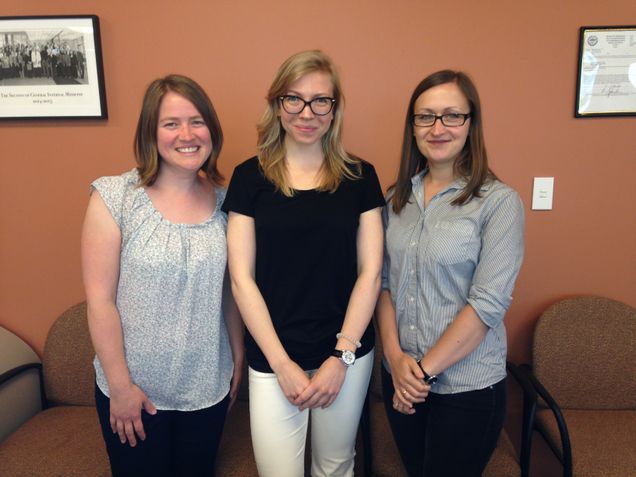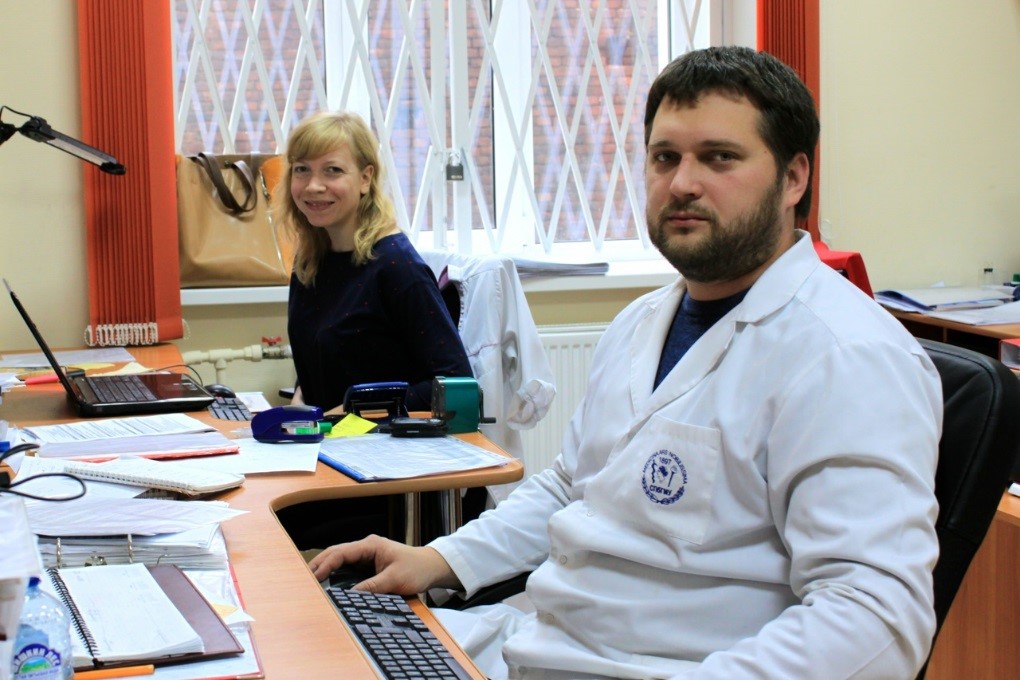Spotlight on…Marina Vetrova
Marina Vetrova, MD, research assessor for the Russia ARCH and ZINC studies and trainee with Yale University’s Center for Interdisciplinary Research on AIDS
As told to URBAN ARCH Admin Core staff, August 2015
l-r: Carly Bridden, Marina Vetrova, and Natalia Gnatienko during Marina’s visit to Boston
Can you tell us a little bit about your clinical background?
I am a clinical psychiatrist. For three years, I was studying psychiatry, with a focus on addiction and the comorbidities of these diseases. I am originally from Volgograd, and I finished my medical degree there. I then moved to St. Petersburg and started an internship at Bekhterev Psychoneurological Scientific Research Institute. Additionally, I have experience working in an addiction clinic, but for part of my work, I was also working in a government clinic. It was a good experience, because I was working with different organizations.
How did you get involved with URBAN ARCH and ZINC projects?
When I started working at Yale University, these were the main projects that I was involved with. It was my first time learning about research, and I was ready to work as a researcher. For now, I have less clinical work to do, and I am more focused on the research. I worked on clinical trials at Yale, and I think they are the golden standard in research, because you can follow everything and you are not just observing – you play an active role in the process.
What is your role in Russia ARCH and ZINC? What do you like most about your position?
I am an assessor. I enroll people who want to participate in the study. I don’t just work with documents and papers, which is common for researchers. This work has allowed me to work with people. Originally, I wanted to do these things, because I like people. I enjoy it, and sometimes, we have participants that are very interesting. I like talking to them and knowing about their lives and how they’ve changed. I also have the pleasure of working in my own space – so I like that too! It’s always organized. It was a change for me the first time, because you have to keep in mind so much stuff. But, the more often I do it now, it has become more enjoyable and less stressful.
l-r: Marina Vetrova with fellow Russia ZINC assessor, Vladimir Palatkin
What do you find to be the most challenging in your role as a research assessor?
I think follow-up is an issue, and we try to do our best to find people, but for this specific population, it is hard. We try to find a way to get higher adherence on the medication in this study. I think that’s the hardest part for now.
Do you think zinc will be effective in slowing HIV disease progression?
Yes. For me, I believe it can work, but I’m not 100% sure. But of course it’s not like ART. Zinc is good for your immune system, but it’s not like if they skip it, it’s bad. It does improve your immune system, and there are not a lot of risks.
Why do you think participants are interested in enrolling in the ZINC trial?
I think it is because the participants are invited to enroll. Some of them do it just for money, and some do it because they care about the trial. This proportion of participants want to try to find new information about HIV and find available treatment for HIV. Some of them also don’t want to start ART, and that’s why they agree to participate. I think they just want to try something new.
Tell us one surprising thing about yourself. What do you like to do in your free time?
A few weeks ago, I tried paratriking. It’s not a parachute, but it’s something where you wish you can fly. There is a driver and one person who sits behind the driver. You go up from the ground, to 15 meters in the air. The most interesting thing is that when you’re in a rush and want to go down, you think you’re going to crash, but you really don’t. I really like to fly so maybe next time, I’ll try a parachute. I’m an extreme person. I like rollercoasters, too!

